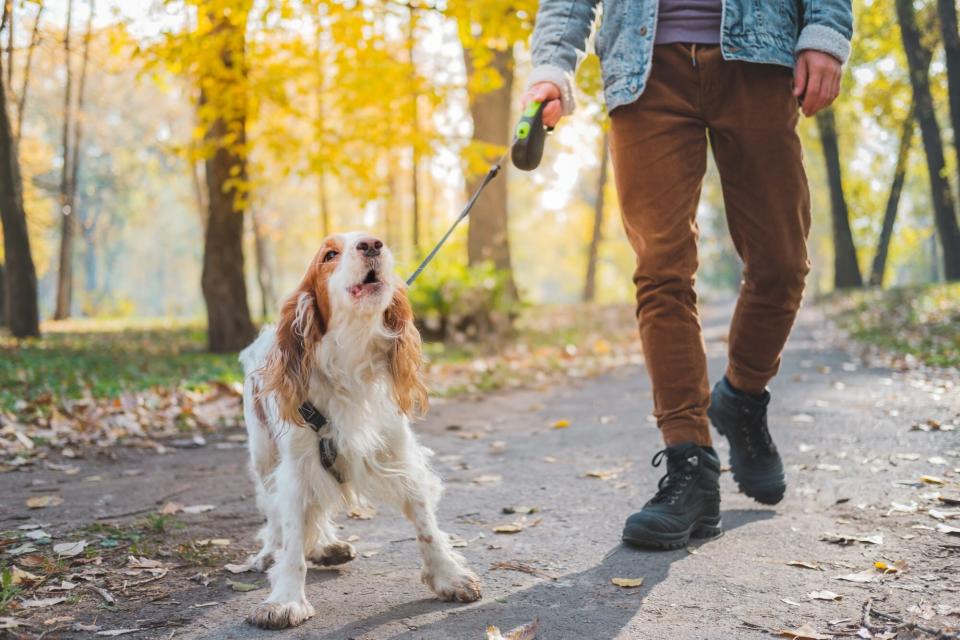Why Does Your Dog Bark at Other Dogs?
Dogs, like people, vocalize what's going on inside their heads in response to their surroundings. Whether you and your dog encounter another dog at the park, in line at the pet store, or at the groomers' office, it's typical that one or both of the dogs will bark in greeting. So, have you ever wondered why your dog is barking or why your dog barks at other dogs? Experts say that it could mean any number of things.

Photoboyko / Getty Images
"Dogs communicate through various different ways," says Jessica Jane MacMurchy, the coordinator from Animal Charity of Ohio. "They not only give physical body language cues, but they also use their voice to vocalize what is going on in their body and mind. A dog's bark isn't always an aggressive, mean, or fear reaction."
According to MacMurchy, there are various reasons why dogs bark at all—let alone bark at one another. This can be anything from expressing excitement, joy, or anxiety. While we all wish we could speak to our pets, there are ways to understand the difference between a happy or fearful reaction. "To be able to determine what your dog's bark is saying, we always recommend using a positive reinforcement training facility to take a body language course," says MacMurchy. "There are signs and cues you can learn about all dogs that will help you to determine what a dog's bark is saying."
Related: The Quietest Dog Breeds That Aren't Likely to Bark
Watch and Observe
To interpret your dog's reaction when meeting another dog, watch to observe if your dog is backing away while projecting a low grumble—that's a cue that your dog is afraid. Conversely, if you consistently see your dog barking out the window at other animals like squirrels and cats, it is likely your dog is bored or possibly territorial of the home. MacMurchy adds that, in most cases, when dogs are barking at one another it's a playful, natural response that expresses their desire to play; these barks are sometimes accompanied by a "play bow" when dogs bow their front legs and wag their tails.
A lack of socialization can also cause reactivity—this is when dogs don't understand how to socialize with other dogs; this could be because they haven't had many chances to interact with other dogs or because they haven't been trained. This nervousness can be remedied with training and safe interactions with other dogs.
Understanding the social situation as well as the body language of your dog around other dogs will better help you understand exactly what they're trying to say.

